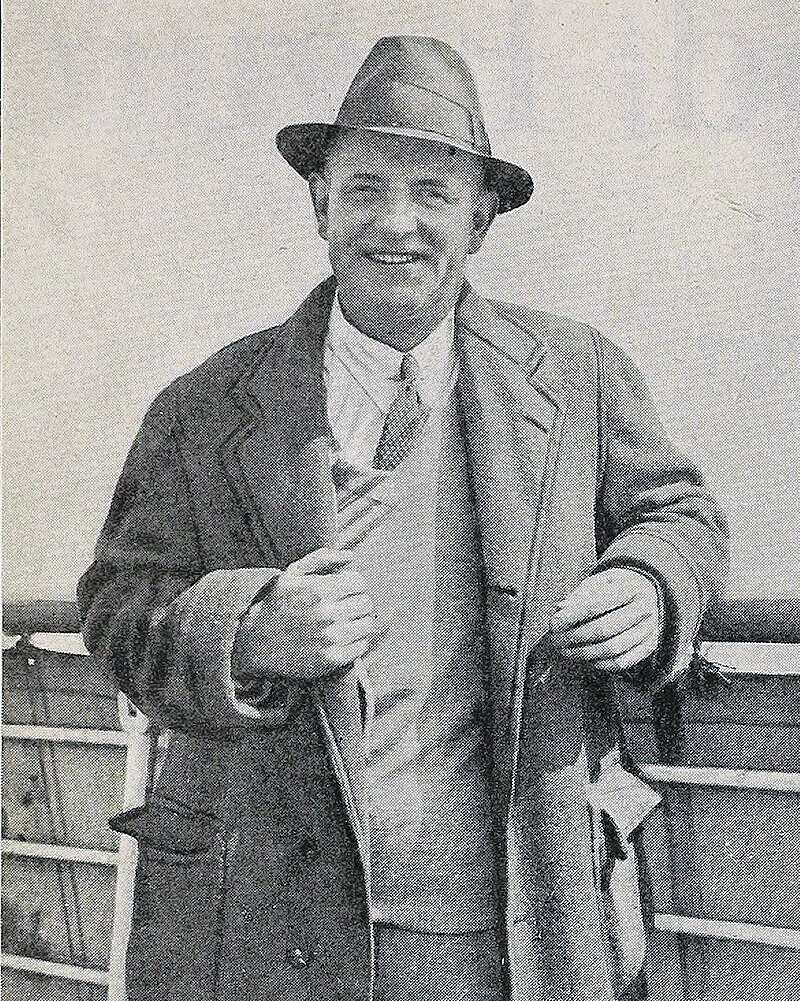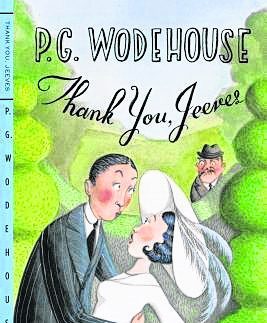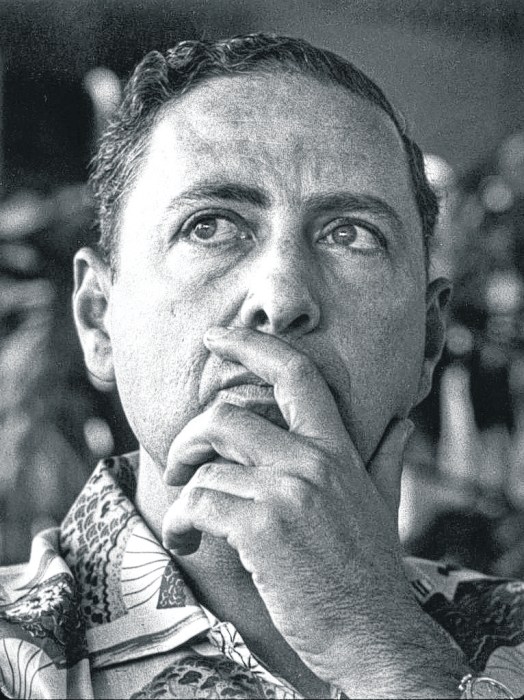He worked at a bank but disliked the job, so he quit. He turned to writing light fiction, a decision that proved to be fortuitous: His short stories and novels were so good that he became one of the most widely read humorists of the 20th century.
Sir Pelham Grenville (P.G.) Wodehouse made his name writing farcical stories and novels about Bertie Wooster, a charming but clueless rich young gentleman who is rescued from his escapades by his valet, Reginald Jeeves.
Wodehouse was an Englishman who adopted America as his home — specifically, the Hamptons, where he spent two decades in self-imposed exile and wrote more than 30 books, including some of his most popular comic novels.
ARISTOCRATS KNEW NOTHING
Born in 1881 in England, after graduating from Dulwich College in 1900 he quit his bank job to work as a humor columnist with The Globe and Traveller in 1902, writing for other publications as well. By 1909, when he was in his late 20s, he had built up a successful career as a freelance writer in the United States and France. Four years later, he started writing farces, notably short stories about Jeeves set in the 1920s and 1930s. The all-wise butler he created, whom the New York Post called “the world’s most famous valet,” would be the subject of Wodehouse’s work for six decades, through 1974.
The overarching theme of P.G. Wodehouse’s work was described in 27East in 2012 by Andrea Jacobsen, a Wodehouse Society member who noted, “The humor was kind of based on the idea that aristocrats knew nothing and they were always depending on their servants to get them out of fixes.”
A prolific writer, P.G. Wodehouse mined the interaction between aristocrats and servants many times over the years, producing more than 300 short stories, 20 film scripts, 30 plays, and 90 books and musical comedies.

Read also: Rosalind P. Walter: The original Rosie the Riveter
AN UNFUNNY SUBJECT
In 1940, the Nazis arrested P.G. Wodehouse at his home, a villa in France. Ever the humorist, his farewell words to his wife were, “Maybe this will give me the material to write a serious book for once,” according to UP (now United Press International).
For a year, as World War II upended countries around the globe, Wodehouse was held in German-run civil-internment camps. Refusing favors, the 59-year-old slept on a straw-filled, lice-infested mattress, shared a cell with 63 others and lost nearly 60 pounds. He did accept one privilege: the loan of a typewriter belonging to a German commandant.
After his release, the Germans put him up at the Hotel Adlon in Berlin, and paid him to deliver short-wave radio commentary to the U.S. every Monday. Although UP reported that there would be no politics and the broadcast was entirely about his personal experiences — and The New York Times echoed the evaluation, calling the programs “upbeat, lighthearted and making fun of the whole internment experience” — some described the broadcasts as propaganda about how well the Nazis treated Wodehouse.
Suspicions swirled around the broadcasts. Friends told him the programs were damaging his reputation and the British Broadcasting Corporation (BBC) banned him from their airwaves. He stopped broadcasting after just five programs. In 1944, the Paris police arrested him, alleging treason and collaboration with the Nazis. He denied the charges.
Then America beckoned. He had spent time in the States earlier, in the 1920s, where he took up golf at the Sound View Golf Club, also known as the Great Neck Golf and Country Club. Now, it was time to leave England. In 1947 he took the liner America across the Atlantic Ocean to the U.S. and lived in Manhattan and Garden City.
“I never did return to England, you know,” the Englishman told The New York Times.
WITH A PEN IN HIS HAND
P.G. Wodehouse had written many musicals, including Anything Goes, with playwright/musical comedy writer Guy Bolton, who lived in Remsenburg. After visiting Bolton, Wodehouse moved to Basket Neck Lane in the small town on Long Island’s South Shore, in 1952. He became an American citizen four years later.
One of his Remsenburg neighbors, Bob Nidzyn, told 27East that Wodehouse was “a quiet man who walked the streets of the hamlet every morning to get his newspaper at a corner store on Montauk Highway, where Peppercorn’s Country Market stands now.”
P.G. Wodehouse was a wildly successful, beloved humorist, short-story writer, novelist, lyricist, and playwright who turned out some 20 novels at his Remsenburg estate, just minutes from Moriches Bay and Westhampton Beach. In January 1975, the expat was knighted by Queen Elizabeth II. One month later, he died at Southampton Hospital at age 93, with a pen in his hand.

































